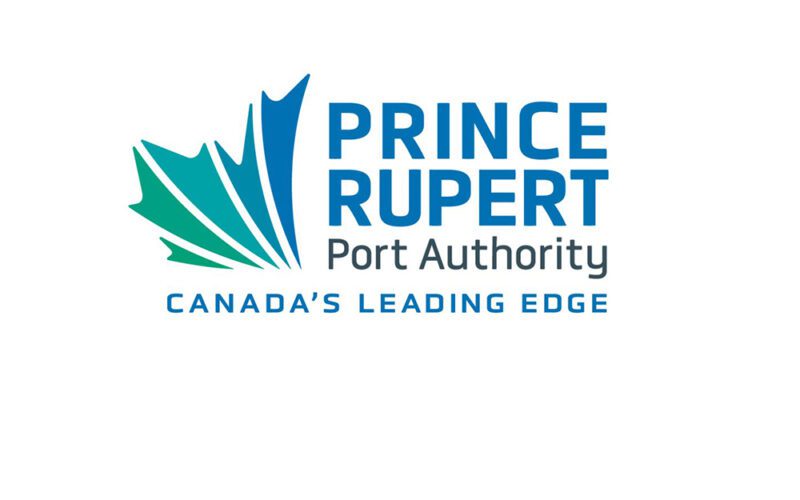 The Port of Prince Rupert moved 23.5 million tons of cargo in 2023, 5% less than 2022’s volumes, the Port Authority revealed in January. This marks a third straight year of volume declines for the British Columbia seaport.
The Port of Prince Rupert moved 23.5 million tons of cargo in 2023, 5% less than 2022’s volumes, the Port Authority revealed in January. This marks a third straight year of volume declines for the British Columbia seaport.
The decline, according to the Prince Rupert Port Authority, reflects challenges of shifting global shipping routes, soft demand for imports, and competition with other North American trade gateways for discretionary cargo.
“However, despite the decline in volumes, significant milestones were reached in 2023 that support the evolution of the trade gateway to become more competitive, resilient, and sustainable in the near and long-term,” the PRPA said in a statement.
“The Port of Prince Rupert is at a critical juncture, and we are focused on actively expanding the services, capacity, and capabilities required to strengthen our competitive advantage that trade partners and industry have come to rely on and grow our gateway,” Port Authority President and CEO Shaun Stevenson said.
“The 2023 results underscore the importance of the projects already underway to develop large-scale transloading infrastructure and build new energy export facilities,” he continued. “These developments will open a new chapter in intermodal trade at the port and anchor Canada’s role in global energy security for decades to come.”
DP World Prince Rupert’s Fairview Container Terminal saw a 32% decrease in volumes in 2023. This significant drop is due to a broader decline in North American intermodal imports and strong competition on Transpacific trade routes. Terminal performance was also impacted by labor action that halted operations for 13 days in the third quarter of the year.
Members of International Longshore and Warehouse Union Canada went on strike in July 2023, and were off the job for about two weeks due to a dispute with the British Columbia Maritime Employers Association.
The matter was eventually resolved and a four-year labor contract signed.
Despite the decrease in container volumes, demand for Western Canadian energy products was strong in 2023, according to the Port Authority, with AltaGas’ Ridley Island Propane Export Terminal shipping nearly 2 million tons, a 13% increase over 2022.
However, Pembina’s Watson Island LPG Bulk Terminal entered its third year of operations, handling close to 494,000 tons, an 8% decrease year-over-year. Drax’s Westview Wood Pellet Terminal shipped 1.3 million tons to markets in Europe and Asia.
Trigon Pacific Terminals also saw a strong year, moving 8.8 million tons of dry bulk product through its terminal, including 5.4 million tons of metallurgical coal. Shipments of that product saw a 51% jump over 2022.
A stronger harvest year contributed to Prince Rupert Grain shipping nearly 3.6 million tons of Western Canadian agricultural products, an 11% rise year-over-year, according to Port Authority data.
Cruise traffic almost doubled over 2022 volumes, with 81,327 cruise passengers transiting through Prince Rupert in 2023. It was also the first year that cruise terminal operations, scheduling, passenger services, and shore excursions were managed by Global Ports Holding (GPH) – the world’s largest independent cruise port operator.
Also in 2023, the Port of Prince Rupert moved forward on multiple strategic projects and partnerships that are essential to strengthening and diversifying the trade gateway.
“These projects will ensure the Port of Prince Rupert can continue to anchor competitive and resilient trade, while taking a leading role in developing sustainable global supply chains,” the port said.
The projects include construction was started on the $750-million Ridley Island Export Logistics Project, an innovative large-scale facility that will provide rail-to-container transloading of multiple export products.
RayMont Logistics will develop and operate the site’s transload facilities that will provide a total capacity of 400 thousand TEUs annually and will commence operations in Q3 2026.
Additonally, the Ridley Energy Export Facility, a joint venture between AltaGas and Vopak, executed a long-term lease on a 190-acre site administered by the Prince Rupert Port Authority.
The proposed terminal would develop infrastructure that can provide over seven million tons of capacity for a variety of liquid bulk cargoes, including lower-carbon energy sources such as propane, butane, and methanol.
Early works began on the bulk liquid storage and export facility in Q4 2023, with a Final Investment Decision anticipated in the second quarter of this year.
“GPH continues to work with PRPA, local businesses, and cruise lines to grow passenger volumes over the next several years, while working to ensure the infrastructure and amenities are in place to support a significant increase in cruise visitors,” the Port Authority said.
There’s a new push to make shipping routes between Canada’s West Coast, Asia and the Middle East more sustainable.
In other news, the PRPA in December inked a global Memorandum of Understanding regarding multi-port, multi-jurisdiction green shipping corridors, a move to formally create green pathways from Edmonton and Prince Rupert to Asia and Middle East seaports.
“Together with our port industry, Indigenous, and local community partners, we are committed to realizing a shared vision of a thriving and sustainable trade gateway. We are taking concrete action to address climate change and reduce the impacts of port activity,” Stevenson said.
The agreement was signed during the 28th Conference of the Parties to the UN Framework Convention on Climate Change in Dubai.
The port said that it plans to partner with industry and government entities to advance the development of zero-emission solutions, including electrification of port operations, fuel alternatives, waste management and other initiatives.

